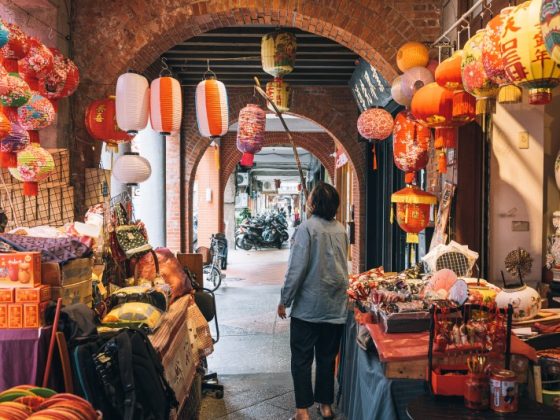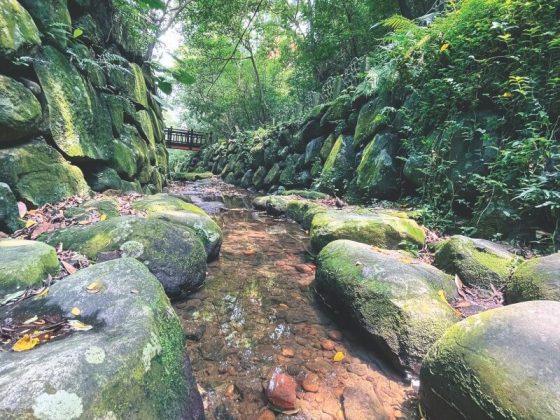“Hou—!”
Hou, meaning monkey in Mandarin, is what Lin Mei-Yin (林美吟) calls out to greet the troops of Formosan rock macaques. The primates recognize Lin, Secretary-General of the Association for Coexistence with Macaca Cyclopis (ACMC, 台灣獼猴共存推廣協會), and immediately respond to her call.
Shoushan (壽山) is the most well-known habitat of the Formosan rock macaques in Taiwan, making it the most popular hiking trail in Kaohsiung City. Taiwan Scene followed in Lin’s footsteps to Shoushan with a mission of putting aside whatever prejudices people may have about the Formosan rock macaque, and experiencing the peaceful coexistence of humans and wild animals. (Read more: Visiting Kaohsiung, Southern Taiwan’s Largest City)
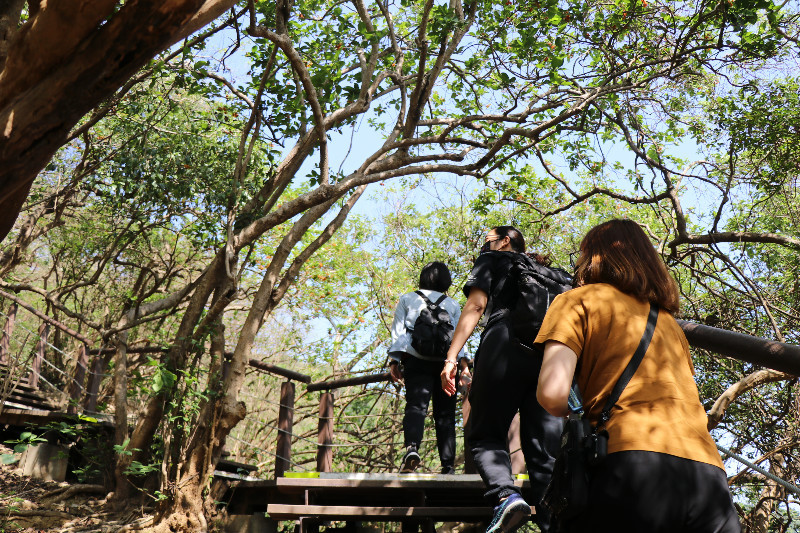
Entering the World of Macaques
Formosan rock macaques are endemic to Taiwan, and are the only primates in Taiwan other than humans. They also live the closest to and have the highest overlap in territory with humans. However, due to their high intelligence and foraging behavior, those who live close to humans are often said to snatch food from hikers and damage the homes of nearby residents. The conflict between humans and macaques has gradually led to prejudice against these creatures.
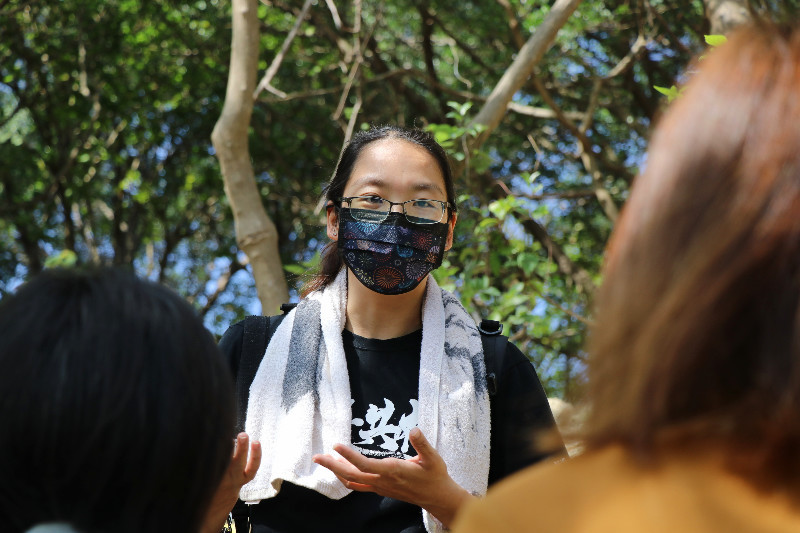
“Formosan rock macaques aren’t bad. They just need to be understood,” Lin tells us, adding that they don’t attack humans that often. When they open their mouths, it’s more a reminder or a warning. So if you see a macaque that is threatening you by showing its teeth, just ignore it and avert your gaze. They are omnivores and usually eat fruit, leaves, stems, and soil. To macaques, a person’s bags mean delicious food that they don’t often get to eat. Therefore, Lin reminds us before the start of tour not to carry bags or leave food out in the open, and teaches us how to react if we suddenly come across macaques that pull on our backpacks.
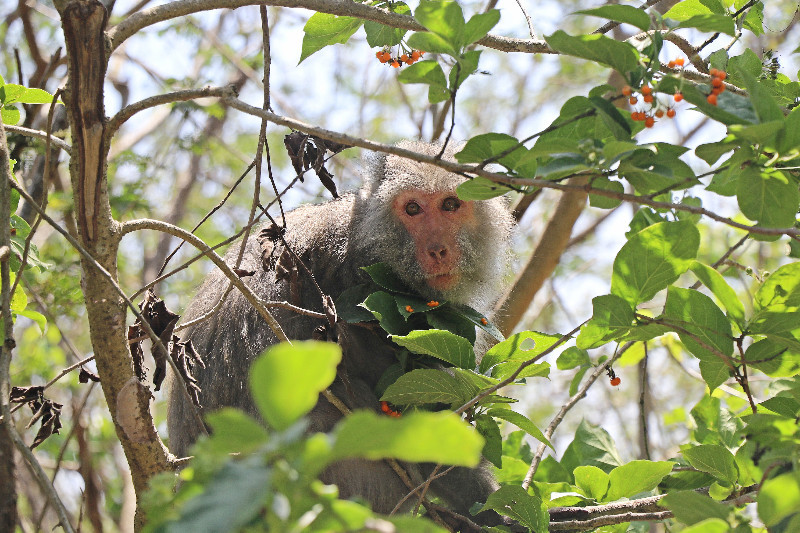
Soon after we entered the mountain area, we encountered a male-only group. Lin had us sit on the ground and relax while she explained that, “Macaques have a matriarchal society, so there’s no such thing as a ‘monkey king’ that you hear in tales. A male-only group is made up of young male macaques that are around four years old and are still waiting to be accepted by females. In the future, they’ll have to go through many tests before they can make it into the core of a group.” According to Lin, these “bachelors” are equivalent to a group of 17 or 18-year-old teenage boys who are trying to find their place in society.
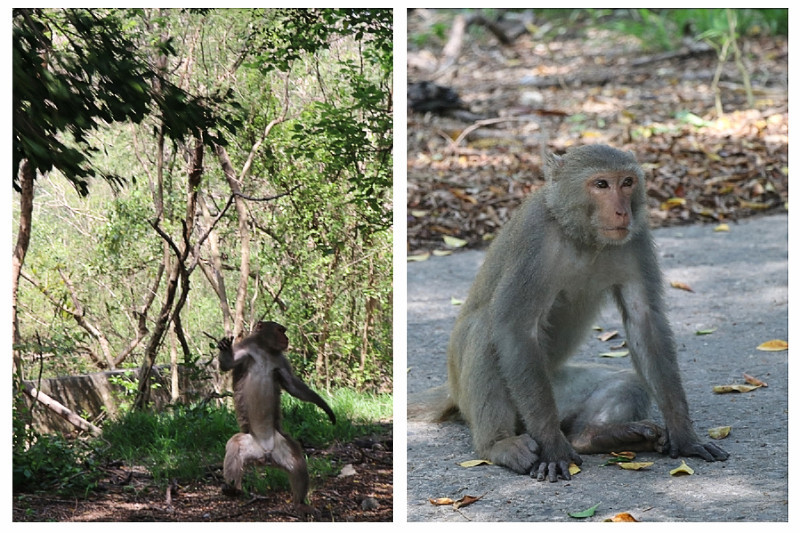
The Journey with Monkeys Started by “Papa Macaque”
As we talked, we saw a pregnant mother macaque sitting quietly in a tree and a baby macaque emerging from a pond soaking wet. The baby didn’t hesitate to run to Lin and hug her thighs in an affectionate way to dry itself off. The mother simply watched nonchalantly from the tree, while we stared in amazement at what had just happened.
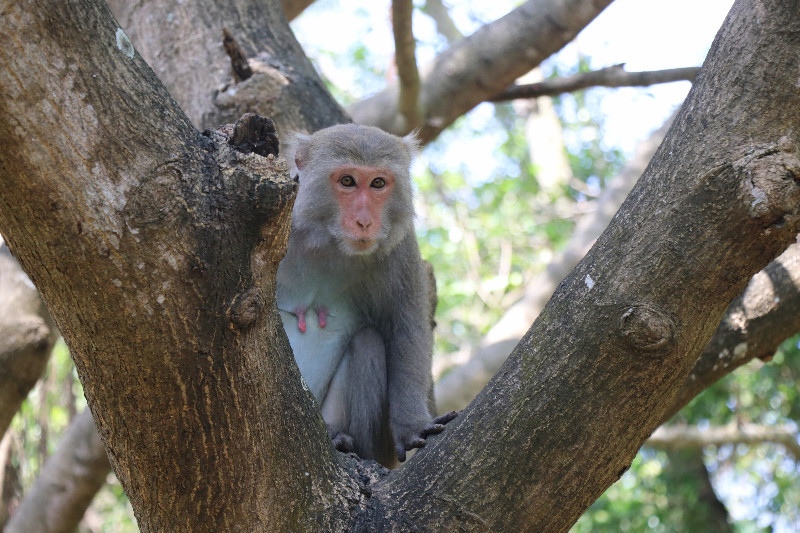
The story of Lin’s connection with the macaques began with her father, Lin Chin-Fu (林金福), who is also known as “Papa Macaque.” During a hiking trip at Shoushan in 1993, the Lin family was inspired to learn more about the macaques living on the mountain. Since then, Papa Macaque has conducted research on the macaques and published more than ten papers on them. He was also the first person to create written family trees for the macaques at Shoushan to record each individual and group’s health and behaviors.
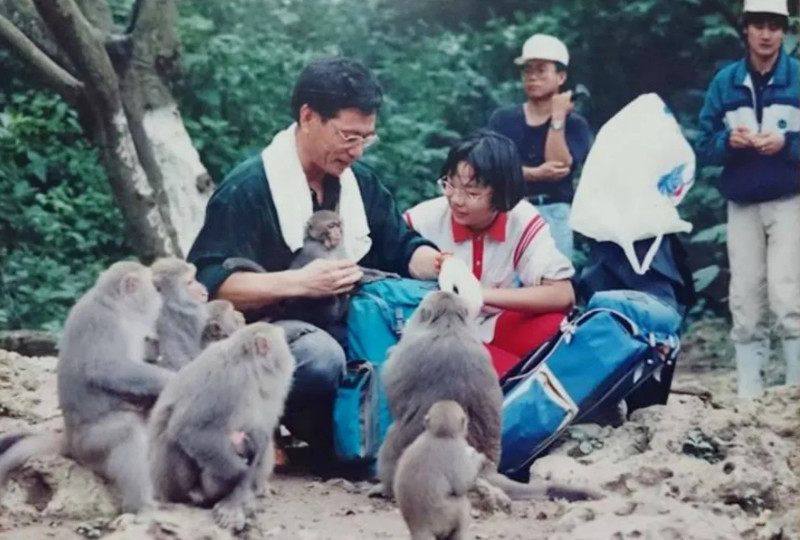
Even since she was a child, Lin has hiked up the mountain with her father to learn about the Formosan rock macaque. She knew very well that her father was someone who insisted on doing the right thing even if it was difficult. As exaggerated news about macaques continued to appear in the news, she decided to devote herself to the promotion of peaceful coexistence with macaques. In 2014, she created the “Rocker Monkey (台灣獼猴吱吱黨)” Facebook group to dispel rumors about the macaques. To reach a wider audience, she established ACMC in 2019. As of now, she has held hundreds of speeches and led over 700 guided tours, taking at least 10,000 people up the mountain to learn about macaques.
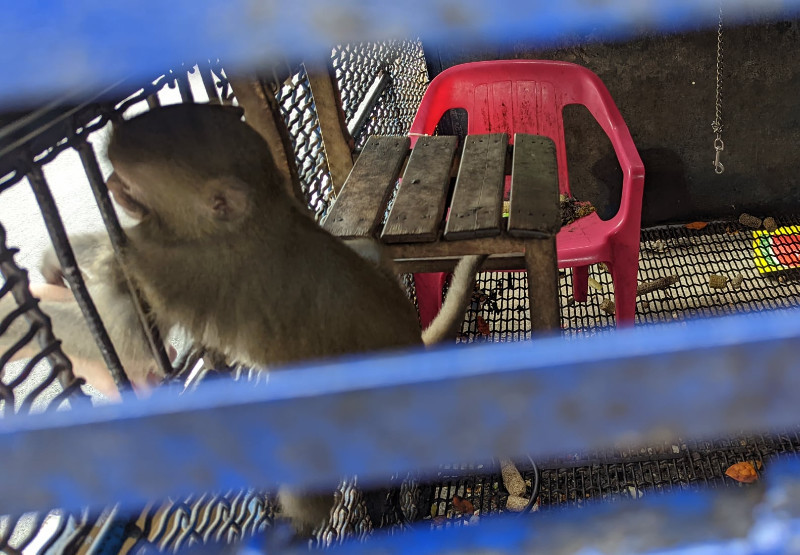
“To me, the macaques are like family. If your family members are misunderstood by others or even facing a fight for their lives, you’d naturally want to help them by speaking out and doing something,” Lin says candidly.
Humankind’s fear of macaques is largely due to a lack of understanding that leads to negative perceptions, which even causes some to use weapons to intimidate and attack them. Little do people know that the land which they now take for granted as theirs was once the habitat of the macaques. The expansion of urbanization has resulted in the fragmentation of the macaque habitat, which in turn results in infertility and genetic defects. Also, the number of macaques in the wild is not as high as people think. In January 2019, the government announced that the Formosan rock macaque would be removed from the list of protected species and downgraded to being classified as a species of “ordinary wildlife,” thus the issue of illegal captivity, hunting, and trafficking of macaques has continued to worsen.
Minds of a Mother Made for Monkeys and Men
In recent years, Lin has gained a new identity as a mother. She jokingly refers to her daughter as “Cub,” and has taken her to Shoushan to learn about macaques since she was nine months old. Now, not only does little Cub know how to mimic the call of the macaques, but the macaques also approach her and pinch the girl’s cheeks. Since little Cub has been watching her mother from a young age, she also chides hikers when she sees them behaving inappropriately towards the macaques.
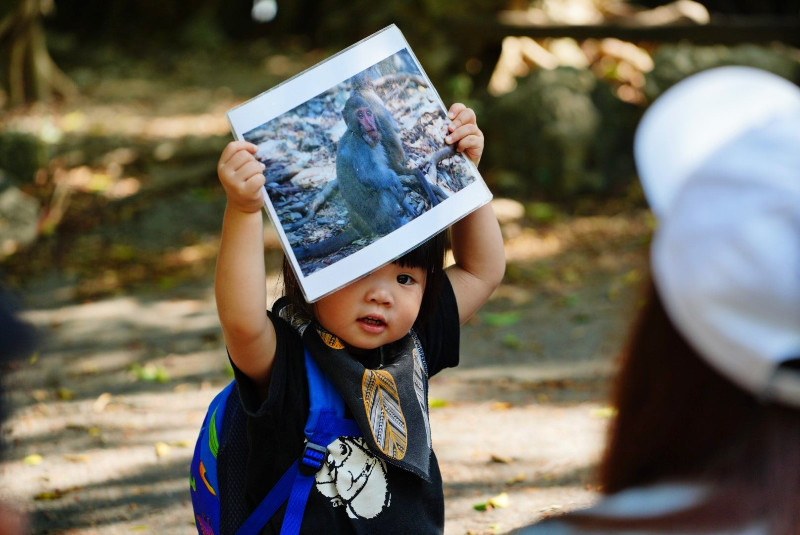
Lin says that there have been many frustrations and people voicing their doubts along the way, but she has not given up, and believes that any issue can be resolved through education. For example, people who participated in tours often share the things they learned after seeing the macaques in person with friends and relatives, which is the motivation for ACMC’s active advocacy.
Lin emphasizes that she is not asking for people to fall head-over-heels in love with the macaques, but simply would like them to be open-minded and learn to understand while getting along with these creatures so that the conflicts between humans and macaques can be reduced.
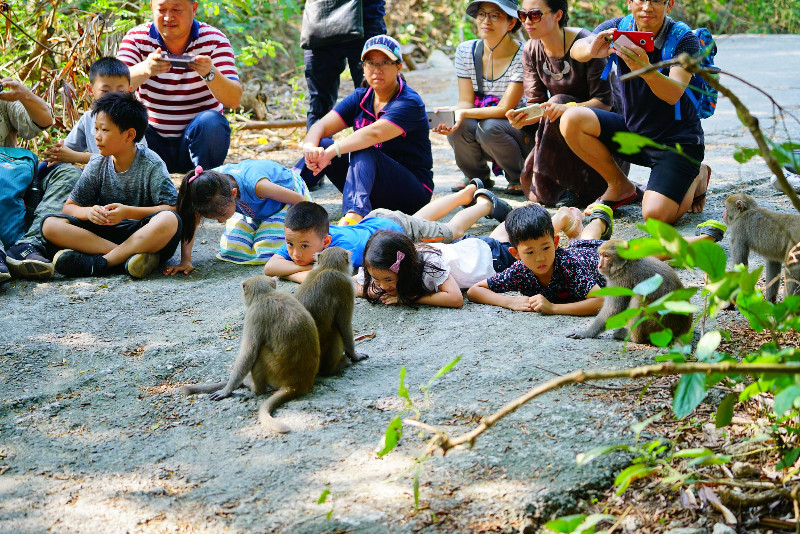
When COVID came, ACMC didn’t want it to limit their opportunities for promotion and education, so they set up a YouTube channel (Chinese Name: 獼片頻道) that combines current events with issues commonly encountered by humans and macaques in order to reach more young people. They also invite celebrities and influencers to share the knowledge about macaques and go to local elementary and junior high schools to spread awareness in the hope that more people will treat the macaques with compassion.
“I won’t ask my daughter to take up the mantle. I just want to teach her the right way to treat animals, especially since they can’t speak and express themselves. We should start with correcting human behaviors and attitudes first,” Lin says before summing up the tour.
The next time you’re at Shoushan, follow in the footsteps of the ACMC and have fun with the macaques!
Words by Fuafu
Photos by Fuafu, ACMC, Lin Mei-Yin


